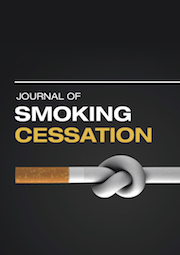No CrossRef data available.
Article contents
What General Practitioners Can Do to Deliver More Brief Stop-Smoking Interventions: An Exploratory Study
Published online by Cambridge University Press: 21 February 2012
Abstract
Guidelines recommend that general practitioners (GPs) should advise all smoking patients to quit and provide additional stop-smoking interventions as appropriate. This study aimed to improve our understanding of how this recommendation can be achieved. General practitioners (N = 26) from London completed a questionnaire about their stop-smoking interventions and psychological factors that might affect these. Thirty-one per cent of the patients recognised as smokers by GPs did not receive an intervention and two-thirds of these were judged to be inappropriate for receipt of an intervention. Psychological factors that predicted behaviour were perceptions that doing this was ‘normative’, making an effort to make it happen, and feeling that the behaviour was easy to enact. Strategies to improve guideline implementation may be more effective if they addressed the above psychological factors.
Keywords
- Type
- Articles
- Information
- Copyright
- Copyright © Cambridge University Press 2008


